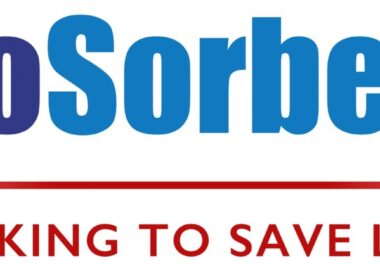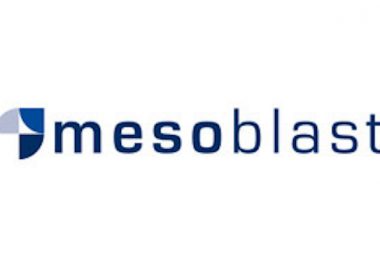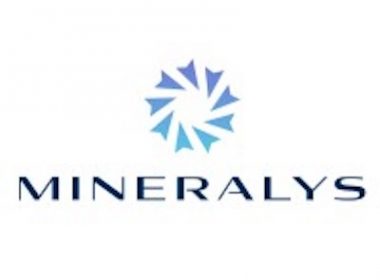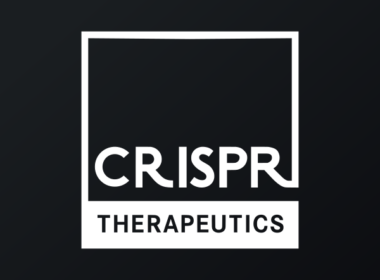ATLANTA, July 2, 2025 /PRNewswire/ — The MiRus Siegel™ Valve was featured in three podium presentations at the NY Valves meeting last week. Pradeep K. Yadav MD, Piedmont Heart Institute, Atlanta and Raj R. Makkar MD, Cedars Sinai Heart Institute, Los Angeles presented patient case…
Coronary/Structural Heart
CytoSorbents Provides U.S. FDA and Health Canada Regulatory Update for DrugSorb-ATR
PRINCETON, N.J., July 2, 2025 /PRNewswire/ — CytoSorbents Corporation (NASDAQ: CTSO), a leader in blood purification therapies for life-threatening conditions in the intensive care unit and cardiac surgery, today provided a regulatory update on its marketing applications for…
CMS Recognizes Eko Health’s AI-Powered Heart Disease Detection in OPPS July 2025 Update, Establishing Payment Rate for SENSORA®
CPT Code for AI-Enabled Cardiac Analysis, Issued by the American Medical Association (AMA), Also Takes Effect July 1, 2025 SAN FRANCISCO, July 1, 2025 /PRNewswire/ — Eko Health, a leader in AI-powered cardiac and pulmonary care, announced a major step forward in expanding access to early…
Mesoblast and FDA Align on Key Items for Revascor® Biologic License Application in Ischemic Heart Failure
NEW YORK, June 30, 2025 (GLOBE NEWSWIRE) — Mesoblast (Nasdaq:MESO; ASX:MSB), global leader in allogeneic cellular medicines for inflammatory diseases, today announced alignment with the United States Food and Drug Administration (FDA) on items required for filing a Biologics License Application (BLA) for Revascor® (rexlemestrocel-L) in the treatment of patients with ischemic heart failure with reduced ejection fraction (HFrEF) and inflammation.
Mineralys Therapeutics Announces Journal of the American Medical Association (JAMA) Publication of Pivotal Phase 3 Launch-HTN Trial for Lorundrostat
– The Launch-HTN trial is the largest trial of an aldosterone synthase inhibitor completed in participants with uncontrolled or treatment resistant hypertension – – Lorundrostat 50 mg once daily demonstrated clinically meaningful reductions in systolic blood pressure, with a 16.9 mmHg reduction at Week 6 and a 19.0 mmHg reduction at Week 12 – – Lorundrostat was generally well-tolerated; and treatment-emergent adverse events were mostly mild, transient, and resolved without intervention – RADNOR, Pa., June 30, 2025 (GLOBE NEWSWIRE) — Mineralys Therapeutics, Inc. (Nasdaq: MLYS), a clinical-stage biopharmaceutical company focused on developing medicines to target hypertension, chronic kidney disease (CKD), obstructive sleep apnea (OSA) and other diseases driven by dysregulated aldosterone, today announced the publication of the positive results from the pivotal Phase 3 Launch-HTN trial in the Journal of the American Medical Association (JAMA). The manuscript titled “Lorundrostat in Participants with Uncontrolled and Treatment-Resistant Hypertension” is featured in the June 30, 2025 issue. The Launch-HTN trial evaluated the efficacy and safety of lorundrostat, a novel aldosterone synthase inhibitor (ASI), when added to existing background treatment in 1,083 participants with uncontrolled or treatment resistant hypertension. The trial demonstrated that lorundrostat significantly reduced systolic blood pressure (BP) with a favorable safety and tolerability profile. “Hypertension remains the most prevalent and preventable driver of cardiovascular disease globally, yet a significant proportion of patients continue to struggle with inadequate blood pressure control. We believe lorundrostat has the potential to be a best-in-class treatment for patients with uncontrolled or treatment resistant hypertension,” said Jon Congleton, Chief Executive Officer of Mineralys Therapeutics. “We are pleased to have the results of Launch-HTN published in a medical journal as prestigious as JAMA. The consistency of results seen in the lorundrostat development program – which includes multiple trials across differentiated patient populations – supports its potential to have a broad role in future hypertension care.” “Launch-HTN was the largest Phase 3 trial of an ASI in patients with uncontrolled or resistant hypertension, designed to reflect usual clinical practice. It demonstrated consistent blood pressure lowering efficacy and safety with the aldosterone synthase inhibitor, lorundrostat, across a diverse group of patients,” said Dr. Manish Saxena, MBBS, Deputy Clinical Co-Director of Queen Mary University of London’s William Harvey Heart Centre, and Hypertension Specialist at Barts Health NHS Trust and lead investigator on the study. “Dysregulated aldosterone, a key factor in driving hypertension in up to 30% of all hypertensive patients, is a consistent feature of treatment-resistant hypertension and related cardiovascular morbidities, such as heart failure and chronic kidney disease, making aldosterone synthase inhibition an attractive treatment target. Lorundrostat, a novel ASI therapy, is a promising development that could help address unmet clinical needs for patients who remain hypertensive despite multiple medications.” Key Findings from Launch-HTN The Launch-HTN trial was a global, randomized, double-blinded, placebo-controlled Phase 3 trial, which enrolled 1,083 eligible adult participants who failed to achieve their BP goal despite being on two to five antihypertensive medications. Launch-HTN reflects the real-world setting for clinicians by utilizing automated office blood pressure (AOBP) measurements and allowing participants to stay on their existing medications. Authors noted that the trial recruited a diverse population as reflected in the high proportion of females, Black or African American and elderly participants. When added to existing background treatment, lorundrostat 50 mg dosed once daily demonstrated clinically meaningful, statistically significant mean reductions in AOBP with a 16.9 mmHg reduction at Week 6 (-9.1 mmHg placebo adjusted; p-value < 0.0001) that was sustained with a reduction of 19.0 mmHg at Week 12 (-11.7 mmHg placebo adjusted; p-value < 0.0001). These benefits were consistent across age, sex, race, body mass index, and baseline medication regimen. Lorundrostat demonstrated a favorable safety and tolerability profile in the Launch-HTN trial. The anticipated on-target effects on serum electrolytes, increased serum potassium and reduced serum sodium were modest and rapidly reversible upon discontinuation of lorundrostat. A confirmed serum potassium level of greater than 6.0 mmol/L occurred in three subjects (0.6%) on lorundrostat 50 mg once daily, as compared to one subject (0.4%) on placebo. Suppression of cortisol production was not observed, and there was a very low incidence of drug-related serious adverse events resulting in discontinuation or dose-adjustment of study medication. About Hypertension Having sustained, elevated BP (or hypertension) increases the risk of heart disease, heart attack and stroke, which are leading causes of death in the United States.1 In 2022, more than 685,000 deaths in the United States included hypertension as a primary or contributing cause.2 Hypertension and related health issues resulted in an estimated annual economic burden of about $219 billion in the United States in 2019.3 Less than 50% of hypertension patients achieve their BP goal with currently available medications.4 Dysregulated aldosterone levels are a key factor in driving hypertension in approximately 30% of all hypertensive patients.5 About Lorundrostat Lorundrostat is a proprietary, orally administered, highly selective aldosterone synthase inhibitor being developed for the treatment of uncontrolled hypertension (uHTN) or resistant hypertension (rHTN), as well as CKD and OSA. Lorundrostat was designed to reduce aldosterone levels by inhibiting CYP11B2, the enzyme responsible for its production. Lorundrostat has 374-fold selectivity for aldosterone-synthase inhibition versus cortisol-synthase inhibition in vitro, an observed half-life of 10-12 hours and demonstrated a 40-70% reduction in plasma aldosterone concentration in hypertensive subjects. About Mineralys Therapeutics Mineralys Therapeutics is a clinical-stage biopharmaceutical company focused on developing medicines to target hypertension, CKD, OSA and other diseases driven by dysregulated aldosterone. Its initial product candidate, lorundrostat, is a proprietary, orally administered, highly selective aldosterone synthase inhibitor that Mineralys Therapeutics is developing for the treatment of cardiorenal conditions affected by dysregulated aldosterone, including hypertension, CKD, and OSA. Mineralys is based in Radnor, Pennsylvania, and was founded by Catalys Pacific. For more information, please visit https://mineralystx.com. Follow Mineralys on LinkedIn, Twitter and Bluesky. Forward Looking Statements Mineralys Therapeutics cautions you that statements contained in this press release regarding matters that are not historical facts are forward-looking statements. The forward-looking statements are based on our current beliefs and expectations and include, but are not limited to, statements regarding: the potential therapeutic benefits of lorundrostat; the Company’s expectation that ASIs with an SGLT2 inhibitor may provide additive clinical benefits to patients; the Company’s expectation that Advance-HTN and Launch-HTN may serve as pivotal trials in submission of a new drug application (NDA) to the U.S. Food and Drug Administration (FDA); the Company’s ability to evaluate lorundrostat as a potential treatment for CKD, OSA, uHTN or rHTN; the planned future clinical development of lorundrostat and the timing thereof; and the expected timing of commencement and enrollment of participants in clinical trials and topline results from clinical trials. Actual results may differ from those set forth in this press release due to the risks and uncertainties inherent in our business, including, without limitation: topline results that we report are based on a preliminary analysis of key efficacy and safety data, and such data may change following a more comprehensive review of the data related to the clinical trial and such topline data may not accurately reflect the complete results of a clinical trial; our future performance is dependent entirely on the success of lorundrostat; potential delays in the commencement, enrollment and completion of clinical trials and nonclinical studies; later developments with the FDA may be inconsistent with the feedback from the completed end of Phase 2 meeting, including whether the proposed pivotal program will support registration of lorundrostat which is a review issue with the FDA upon submission of an NDA; the results of our clinical trials, including the Advance-HTN and Launch-HTN trials, may not be deemed sufficient by the FDA to serve as the basis for an NDA submission or regulatory approval of lorundrostat; our dependence on third parties in connection with manufacturing, research and clinical and nonclinical testing; unexpected adverse side effects or inadequate efficacy of lorundrostat that may limit its development, regulatory approval and/or commercialization; unfavorable results from clinical trials and nonclinical studies; results of prior clinical trials and studies of lorundrostat are not necessarily predictive of future results; macroeconomic trends and uncertainty with regard to high interest rates, elevated inflation, tariffs, and the potential for a local and/or global economic recession; our ability to maintain undisrupted business operations due to any pandemic or future public health concerns; regulatory developments in the United States and foreign countries; our reliance on our exclusive license with Mitsubishi Tanabe Pharma to provide us with intellectual property rights to develop and commercialize lorundrostat; and other risks described in our filings with the Securities and Exchange Commission (SEC), including under the heading “Risk Factors” in our annual report on Form 10-K, and any subsequent filings with the SEC. You are cautioned not to place undue reliance on these forward-looking statements, which speak only as of the date hereof, and we undertake no obligation to update such statements to reflect events that occur or circumstances that exist after the date hereof. All forward-looking statements are qualified in their entirety by this cautionary statement, which is made under the safe harbor provisions of the Private Securities Litigation Reform Act of 1995. References 1 CDC. Facts About Hypertension. Centers for Disease Control and Prevention. Updated September 27, 2023. Accessed June 2025.2 CDC. Underlying Cause of Death, 1999–2022 Results. CDC WONDER Online Database. Accessed June 2025.3 Centers for Disease Control and Prevention. Health and Economic Benefits of High Blood Pressure Interventions. National Center for Chronic Disease Prevention and Health Promotion. Updated November 20, 2023. Accessed June 2025.4 Carey RM, et al. Resistant Hypertension: Detection, Evaluation, and Management: A Scientific Statement from the AHA. Hypertension. 2018;72(5):e53-e90.5 Brown JM, et al. Primary Aldosteronism and the Pathogenesis of Hypertension. Physiol Rev. 2018;98(1):103-137. Contact: Investor Relationsinvestorrelations@mineralystx.com Media RelationsMelyssa WeibleElixir Health Public RelationsPhone:1-201-723-5805Email: mweible@elixirhealthpr.com
Heartflow to Showcase Landmark DECIDE Data at SCCT 2025, Advancing AI-Driven Care for Coronary Artery Disease
DECIDE Registry receives top award as company plans to unveil the next generation plaque technology at SCCT Annual Scientific MeetingMOUNTAIN VIEW, Calif., June 30, 2025 (GLOBE NEWSWIRE) — Heartflow, Inc., the leader in AI technology for coronary artery disease (CAD), today announced it will present new data and technology for its AI-enabled Plaque Analysis at the upcoming Society of Cardiovascular Computed Tomography (SCCT) Annual Scientific Meeting, including final primary endpoint data from the DECIDE Registry. Together, these data and advancements mark a bold step forward in how clinicians manage CAD with Heartflow’s AI-enabled plaque assessment. The SCCT Annual Scientific Meeting is taking place July 17-20, 2025 in Montreal. In the DECIDE Registry, Heartflow’s AI-enabled Plaque Analysis led to medical management change in over half of patients beyond coronary computed tomography angiography (CCTA) alone. Full insights on medical management and clinical outcomes will be presented at the SCCT meeting. DECIDE Registry investigator Cian McCarthy, MB, BCH, BAO, SM, is the first-place recipient of the 2025 SCCT Clinical Trials and Registries Award. The award recognizes clinical trials that use CCTA-based analyses to detect atherosclerotic burden in the diagnosis and treatment of CAD, as well as demonstrate a positive impact on patient outcomes. SCCT will present Dr. McCarthy with the award at the opening session of SCCT 2025 on Friday, July 18, followed by a presentation of the study results. The DECIDE Registry is the largest prospective study of its kind, collecting real-world data from multiple sites investigating how HeartFlow’s AI-enabled Plaque Analysis informs medical management plans compared to CCTA alone for patients with suspected CAD. Approximately 20,000 patients will be enrolled at over 30 sites across the United States. Heartflow will also showcase its next generation Plaque Analysis technology and a vastly expanded data set of age- and sex-specific nomograms for atherosclerotic plaque. Heartflow’s numerous presentations at SCCT, demonstration of new Plaque Analysis technology, and recognition of the DECIDE study by the SCCT scientific community all underscore Heartflow’s investment in clinical evidence and technology with continued unwavering commitment to being at the forefront of cardiovascular management. “As Heartflow marks 15 years of innovation and SCCT celebrates its 20th annual meeting, we’re proud to lead the way in transforming how CAD is diagnosed, treated and managed,” said Campbell Rogers, M.D., FACC, Chief Medical Officer of Heartflow. “This year, we’re especially excited to share our next generation AI-enabled Plaque Analysis technology and our award-winning clinical research. With the DECIDE Registry and enhanced technology, we’re equipping clinicians with deeper insights that lead to real-world impact, guiding more confident, personalized and precise treatment decisions for patients.” Heartflow’s data presentations at SCCT will include: DECIDE Registry Primary Endpoint: Guiding Implementation of Preventative Care Strategies for Patients with Atherosclerotic Plaque on Coronary Computed Tomographic Angiography: Primary Outcomes of the DECIDE (Artificial Intelligence-Derived Plaque Quantification: CTA and AI-CPA for Determining Effective CAD Management) Registry Presenter: Cian McCarthy, MB, BCH, BAO, SM Session: Opening Session Date: Friday, July 18, 2025 Time: 8:00-9:35 a.m. EDT Location: 210 B/F DECIDE Registry Primary Endpoint: Guiding Preventive Care Strategies for Patients with Atherosclerotic Plaque on Coronary Computed Tomographic Angiography: Primary Outcomes of the DECIDE (Artificial Intelligence-Derived Plaque Quantification: CTA and AI-CPA for Determining Effective CAD Management) Registry Presenter: Sarah Rinehart, M.D., FACC Expanded Plaque Nomogram: CT-Derived Nomograms of Coronary Plaque Volume by Age and Sex Presenter: Georgios Tzimas, M.D. Cost Economics: Modeling Long-term Outcomes and Costs of Care Guided By AI-enabled CCTA Plaque Analysis as Compared to Standard of Care in Patients Undergoing CCTA for Stable Chest Pain Presenter: Suzanne J. Baron, M.D. Session: Poster Session 18 Date: Saturday, July 19, 2025 Time: 10:50-11:25 a.m. EDT Location: Exhibit Hall Heartflow also invites meeting attendees to join its other programs, including an educational dinner, symposium, interactive workshop, reception, and more. See the full schedule at heartflow.com/SCCT. About Heartflow, Inc. Heartflow is advancing coronary care by transforming coronary artery disease into a screenable, diagnosable, and manageable condition. Heartflow One is the only complete, non-invasive, precision coronary care platform providing patient insights throughout the guideline-directed CCTA pathway. The AI-driven platform — including RoadMap™ Analysis, FFRCT Analysis and Plaque Analysis — is supported by the ACC/AHA Chest Pain Guideline and backed by more than 600 peer-reviewed publications. Heartflow has helped clinicians manage over 400,000 patients worldwide. Discover how we’re shaping the future of cardiovascular care at www.heartflow.com. Media Contact Elliot Levy elevy@heartflow.com Investor Contact Nick Laudico nlaudico@heartflow.com
CRISPR Therapeutics Named to TIME’s Most Influential Companies List of 2025
ZUG, Switzerland and BOSTON, June 30, 2025 (GLOBE NEWSWIRE) — CRISPR Therapeutics (NASDAQ: CRSP), a biopharmaceutical company focused on creating transformative gene-based medicines for serious diseases, has been named to the fifth annual TIME 100 Most Influential Companies list. The Company was recognized in the Pioneers category for its groundbreaking work in advancing the field of gene editing. TIME highlighted CRISPR Therapeutics’ expansion beyond its landmark success in treating sickle cell disease and beta thalassemia, noting the Company’s progress into diseases with significant unmet medical need such as cardiovascular and autoimmune diseases. This momentum reflects CRISPR Therapeutics’ broader vision to make genetic medicine more scalable and accessible for patients worldwide. “Since our founding, CRISPR Therapeutics has been driven by a mission to transform medicine through bold science and meaningful innovation,” said Samarth Kulkarni, Ph.D., Chairman and Chief Executive Officer of CRISPR Therapeutics. “We are honored to be recognized by TIME. This acknowledgement is testament to the extraordinary dedication and collaboration across our teams to pioneer the next frontier of genetic medicine and improve the lives of patients around the world.” To select the list of the world’s most influential businesses of the year, TIME editors requested nominations across sectors, surveyed its global network of contributors and correspondents around the world, and sought advice from outside experts. They evaluated each company on key factors, including impact, innovation, ambition, and success. The result is a diverse group of organizations shaping the future of business and society. About CRISPR TherapeuticsSince its inception over a decade ago, CRISPR Therapeutics has evolved from a research-stage company advancing gene editing programs into a leader that celebrated the historic approval of the first-ever CRISPR-based therapy. The Company has a diverse portfolio of product candidates across a broad range of disease areas including hemoglobinopathies, oncology, regenerative medicine, cardiovascular, autoimmune, and rare diseases. In 2018, CRISPR Therapeutics advanced the first-ever CRISPR/Cas9 gene-edited therapy into the clinic to investigate the treatment of sickle cell disease and transfusion-dependent beta thalassemia. Beginning in late 2023, CASGEVY® (exagamglogene autotemcel [exa-cel]) was approved in several countries to treat eligible patients with either of these conditions. The Nobel Prize-winning CRISPR technology has revolutionized biomedical research and represents a powerful, clinically validated approach with the potential to create a new class of potentially transformative medicines. To accelerate and expand its efforts, CRISPR Therapeutics has formed strategic partnerships with leading companies including Vertex Pharmaceuticals. CRISPR Therapeutics AG is headquartered in Zug, Switzerland, with its wholly-owned U.S. subsidiary, CRISPR Therapeutics, Inc., and R&D operations based in Boston, Massachusetts and San Francisco, California. To learn more, visit www.crisprtx.com. Investor Contact:+1-617-307-7503ir@crisprtx.com Media Contact:+1-617-315-4493media@crisprtx.com
InterShunt Enrolls First Patient in New Heart Failure Study
Innovative procedure aims to ease symptoms and reduce hospitalizations MINNEAPOLIS, June 30, 2025 /PRNewswire/ — InterShunt Technologies, Inc., a medical device company focused on developing minimally invasive treatments for heart failure, has officially kicked off its latest clinical…
CRISPR Therapeutics Reports Positive Additional Phase 1 Data for CTX310™ Targeting ANGPTL3 and Provides Update on In Vivo Cardiovascular Pipeline
-New Phase 1 clinical data for CTX310™ continues to demonstrate dose-dependent reductions in triglycerides (TG) and low-density lipoprotein (LDL), with peak reduction of up to 82% in TG and up to 86% in LDL, with a well-tolerated safety profile- -Complete Phase 1 data presentation for CTX310 anticipated at a medical meeting in the second half of 2025- -Data update for CTX320™, targeting the LPA gene, now expected in the first half of 2026- -Preclinical in vivo cardiovascular program CTX340™ advancing toward IND / CTA filings targeting refractory hypertension- ZUG, Switzerland and BOSTON, June 26, 2025 (GLOBE NEWSWIRE) — CRISPR Therapeutics (NASDAQ: CRSP), a biopharmaceutical company focused on creating transformative gene-based medicines for serious diseases today announced updates across its in vivo cardiovascular disease programs. These include new data for CTX310™, targeting ANGPTL3, as well as continued progress on CTX320™, targeting the LPA gene, and CTX340™, targeting the AGT gene. “CRISPR Therapeutics remains focused on executing against our strategic priorities and advancing our portfolio of innovative therapies,” said Samarth Kulkarni, Ph.D., Chairman and Chief Executive Officer of CRISPR Therapeutics. “The additional data from our ongoing Phase 1 clinical trial for CTX310 reinforces the potential of our platform to transform the treatment of serious cardiovascular diseases. We are progressing with our dose-finding study and expect to share complete data at a medical meeting in the second half of this year. For CTX320, we are continuing our dose-finding study and anticipate sharing data in the first half of 2026, reflecting a strategic decision to incorporate emerging insights from the evolving Lp(a) treatment landscape.” CTX310, targeting ANGPTL3 CTX310 targets ANGPTL3, a gene that encodes for key protein involved in the regulation of low-density lipoprotein (LDL) and triglyceride (TG) levels – both of which are recognized risk factors for atherosclerotic heart disease (ASCVD). Loss-of-function mutations in ANGPTL3 are associated with significantly reduced levels of LDL and TGs, as well as reduced risk of ASCVD, without known adverse health effects. More than 40 million patients in the U.S. alone are affected by elevated LDL, severely elevated TG or both – representing a significant unmet need and a large addressable population. CTX310 is initially focused on high-risk patients with the greatest unmet medical need and limited effective treatment options. CTX310 is in an ongoing Phase 1 first-in-human clinical trial targeting ANGPTL3 in four patient groups: homozygous familial hypercholesterolemia (HoFH), severe hypertriglyceridemia (sHTG), heterozygous familial hypercholesterolemia (HeFH), or mixed dyslipidemias (MDL). Eligible participants have levels of TG >300 mg/dL and/or LDL-C >100 mg/dL (or >70 mg/dL for subjects with ASCVD). Both LDL and TG are validated surrogate endpoints accepted by regulatory agencies.These new results build upon previously disclosed results from the first 10 patients across the first four cohorts (lean body weight-based doses of DL1 [0.1 mg/kg], DL2 [0.3 mg/kg], DL3 [0.6 mg/kg] and DL4 [0.8 mg/kg]) with at least 30 days of follow-up for each participant. As dose-range finding continues, data to date demonstrate peak reductions of up to 82% in TG and LDL reductions of up to 86% at DL4 without any clinically significant changes in liver enzymes and a safety and tolerability profile consistent with previous findings.The Company anticipates presenting the complete Phase 1 data for CTX310 at a medical meeting in the second half of 2025. CTX320™, targeting LPA CTX320 is in an ongoing Phase 1 clinical trial targeting the LPA gene in patients with elevated lipoprotein(a) [Lp(a)], a genetically determined risk factor associated with increased incidence of major adverse cardiovascular events (MACE). Elevated Lp(a) levels affect up to 20% of the global population and remains unaddressed by current therapies.The Phase 1 trial is enrolling patients and dose-finding is ongoing. An update is now expected in the first half of 2026, reflecting a strategic decision to incorporate emerging insights from the evolving Lp(a) landscape. CTX340, targeting angiotensinogen (AGT) CRISPR Therapeutics is also advancing its preclinical in vivo cardiovascular program CTX340, targeting angiotensinogen (AGT) for the treatment of refractory hypertension. CTX340 is currently progressing through IND/CTA-enabling studies. About In Vivo ProgramsCRISPR Therapeutics has established a proprietary lipid nanoparticle (LNP) platform for the delivery of CRISPR/Cas9 to the liver. The Company’s in vivo portfolio includes its lead investigational programs, CTX310 (directed towards angiopoietin-related protein 3 (ANGPTL3)) and CTX320 (directed towards LPA, the gene encoding apolipoprotein(a) (apo(a)), a major component of lipoprotein(a) [Lp(a)]). Both are validated therapeutic targets for cardiovascular disease. CTX310 and CTX320 are in ongoing clinical trials in patients with heterozygous familial hypercholesterolemia, homozygous familial hypercholesterolemia, mixed dyslipidemias, or severe hypertriglyceridemia, and in patients with elevated lipoprotein(a), respectively. In addition, the Company’s research and preclinical development candidates include CTX340 and CTX450™, targeting angiotensinogen (AGT) for refractory hypertension and 5’-aminolevulinate synthase 1 (ALAS1) for acute hepatic porphyria (AHP), respectively. About CRISPR TherapeuticsSince its inception over a decade ago, CRISPR Therapeutics has evolved from a research-stage company advancing gene editing programs into a leader that celebrated the historic approval of the first-ever CRISPR-based therapy. The Company has a diverse portfolio of product candidates across a broad range of disease areas including hemoglobinopathies, oncology, regenerative medicine, cardiovascular, autoimmune, and rare diseases. In 2018, CRISPR Therapeutics advanced the first-ever CRISPR/Cas9 gene-edited therapy into the clinic to investigate the treatment of sickle cell disease and transfusion-dependent beta thalassemia. Beginning in late 2023, CASGEVY® (exagamglogene autotemcel [exa-cel]) was approved in several countries to treat eligible patients with either of these conditions. The Nobel Prize-winning CRISPR technology has revolutionized biomedical research and represents a powerful, clinically validated approach with the potential to create a new class of potentially transformative medicines. To accelerate and expand its efforts, CRISPR Therapeutics has formed strategic partnerships with leading companies including Vertex Pharmaceuticals. CRISPR Therapeutics AG is headquartered in Zug, Switzerland, with its wholly-owned U.S. subsidiary, CRISPR Therapeutics, Inc., and R&D operations based in Boston, Massachusetts and San Francisco, California. To learn more, visit www.crisprtx.com. CRISPR THERAPEUTICS® standard character mark and design logo CTX310™, CTX320™, CTX340™ and CTX450™ are trademarks and registered trademarks of CRISPR Therapeutics AG. CASGEVY® and the CASGEVY logo are registered trademarks of Vertex Pharmaceuticals Incorporated. All other trademarks and registered trademarks are the property of their respective owners. CRISPR Special Note Regarding Forward-Looking Statements Statements contained in this press release regarding matters that are not historical facts are “forward-looking statements” within the meaning of the Private Securities Litigation Reform Act of 1995. Because such statements are subject to risks and uncertainties, actual results may differ materially from those expressed or implied by such forward-looking statements. Such statements include, but are not limited to, statements made by Dr. Kulkarni in this press release, as well as regarding any or all of the following: (i) CRISPR Therapeutics preclinical studies, clinical trials and pipeline products and programs, including, without limitation, status of such studies and trials (including guidance) and expectations regarding data, safety and efficacy generally; (ii) data included in this press release, as well as the ability to use data from ongoing and planned clinical trials for the design and initiation of further clinical trials; (iii) regulatory submissions and authorizations, including related timelines; and (iv) the therapeutic value, development, and commercial potential of gene editing and delivery technologies and therapies, including CRISPR/Cas9. Risks that contribute to the uncertain nature of the forward-looking statements include, without limitation, the risks and uncertainties discussed under the heading “Risk Factors” in its most recent annual report on Form 10-K and in any other subsequent filings made by CRISPR Therapeutics with the U.S. Securities and Exchange Commission. Existing and prospective investors are cautioned not to place undue reliance on these forward-looking statements, which speak only as of the date they are made. The Company disclaims any obligation or undertaking to update or revise any forward-looking statements contained in this press release, other than to the extent required by law. This press release also contains information regarding our industry, our business and the markets for certain of our product candidates, including data regarding the estimated size of those markets, and the incidence and prevalence of certain medical conditions. Unless otherwise expressly stated, we obtained this industry, business, market and other data from market research firms and other third parties, including medical publications, government data and similar sources. Information that is based on estimates, forecasts, projections, market research or similar methodologies is inherently subject to uncertainties and actual events or circumstances may differ materially from events and circumstances reflected in this information. This press release discusses CRISPR/Cas9 gene editing investigational therapies and is not intended to convey conclusions about efficacy or safety as to those investigational therapies or uses of such investigational therapies. There is no guarantee that any investigational therapy will successfully complete clinical development or gain approval from applicable regulatory authorities. Investor Contact:+1-617-307-7503ir@crisprtx.com Media Contact:+1-617-315-4493media@crisprtx.com
ProFound Therapeutics Announces Multi-Year Strategic Collaboration with Novartis to Discover and Develop Novel Therapeutics for Cardiovascular Disease
ProFound to receive $25M in upfront and near-term milestone payments with a potential value from downstream milestones of $750M per target ProFound to leverage its ProFoundry™ Platform to mine the expanded proteome to identify previously unknown proteins as novel drug targets for cardiovascular disease CAMBRIDGE, Mass., June 26, 2025 (GLOBE NEWSWIRE) — ProFound™ Therapeutics, a company pioneering the expanded human proteome to develop first-in-class medicines for multiple diseases, today announced a four-year collaboration with Novartis to discover and develop novel therapeutics for cardiovascular disease leveraging its ProFoundry™ Platform. This collaboration aims to bring innovative solutions to a growing population of patients by joining ProFound’s unique capabilities in the identification of novel proteins from the expanded proteome as drugs and drug targets with Novartis’ exceptional cardiovascular drug development expertise enabled by their longstanding commitment to helping people with cardiovascular diseases. The ProFoundry Platform combines multi-layered sources of biological data with advanced computational tools to uncover, investigate, and validate a rich source of proteins hidden within the expanded human proteome and elucidate novel protein drugs and drug targets from these findings. “We are thrilled to partner with Novartis, whose leadership in cardiovascular innovation is widely recognized across the industry,” said John Lepore, M.D., CEO of ProFound Therapeutics and Flagship Pioneering CEO-Partner. “This collaboration further validates the power of our ProFoundry Platform to go beyond traditional target discovery approaches by tapping into the vast, largely unexplored biology of the expanded human proteome. Together, we have the opportunity to accelerate the discovery of entirely new targets and support the development of transformative therapies to address the growing global burden of cardiovascular disease.” Fiona Marshall, Ph.D., President, Biomedical Research at Novartis, added “Novartis is committed to identifying novel therapeutic targets to drive the discovery and development of innovative medicines for patients with cardiovascular disease. We are excited to collaborate with ProFound and combine our respective expertise and capabilities to explore under-researched biology, uncover new mechanisms, and translate pioneering science into life-changing treatments.” Under the terms of the four-year collaboration agreement, ProFound will receive $25 million in upfront and near-term milestone payments with the potential transaction value from downstream milestones of $750 million per selected target, with additional potential for tiered royalties. About ProFound™ Therapeutics ProFound Therapeutics is discovering proteins hidden within the expanded human proteome to uncover novel protein drugs and drug targets, producing first-in-class medicines for a multitude of diseases. The company’s ProFoundry™ Platform uses state-of-the-art protein detection technologies to systematically identify and validate novel proteins and dissect their therapeutic potential. The result is an ever-expanding database of tens of thousands of novel proteins, including their connectivity, functionality, and roles in health and disease. ProFound Therapeutics was founded in 2020 by Flagship Pioneering. For more information, please visit www.profoundtx.com Media Contacts: press@flagshippioneering.com












